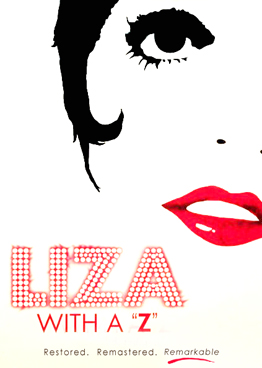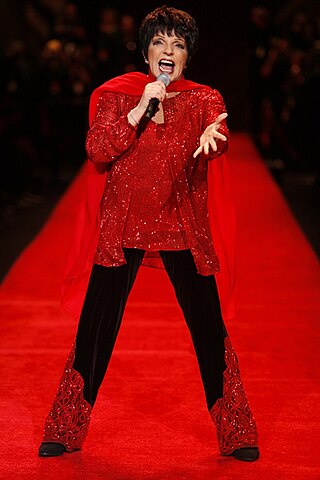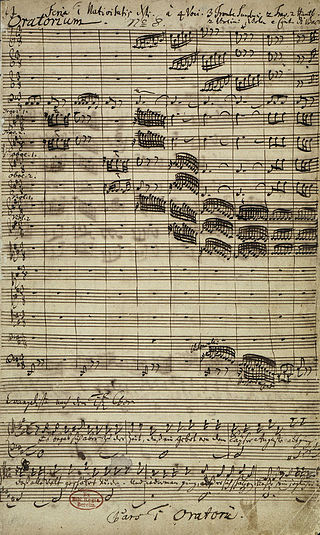Related Research Articles

Charles Aznavour was a French singer of Armenian descent, as well as a lyricist, actor and diplomat. Aznavour was known for his distinctive vibrato tenor voice: clear and ringing in its upper reaches, with gravelly and profound low notes. In a career as a composer, singer and songwriter, spanning over 70 years, he recorded more than 1,200 songs interpreted in 9 languages. Moreover, he wrote or co-wrote more than 1,000 songs for himself and others. Aznavour is regarded as one of the greatest songwriters of all time and an icon of 20th-century pop culture.

Ireen Sheer is a German-English singer. She had her first major hit in 1970 with Hey Pleasure Man. She had a top five hit on the German singles chart with "Goodbye Mama" in 1973. She went on to finish fourth at the Eurovision Song Contest 1974 representing Luxembourg, sixth at the Eurovision Song Contest 1978 representing Germany, and thirteenth at the Eurovision Song Contest 1985 representing Luxembourg again.

Liza's Back is the ninth live album by American singer and actress Liza Minnelli, released by J Records in 2002.

"Help Yourself" is a song recorded by Welsh singer Tom Jones in 1968. The song is one of Jones' best known songs and reached number five in the UK Singles Chart in its original run. It topped the charts in both Ireland and Germany, and spent three weeks at the top spot in Australia. The American single reached Billboard peaks of number 35 pop and number three easy listening, and is still widely played on adult-standards radio.

"Milord" or "Ombre de la Rue" is a 1959 song, famously sung by Édith Piaf.

Mary Roos is a German singer and actress.

Liza Li is a German singer. Her songtexts deal with the themes of love and violence as experienced by young women.

Claudia Jung is a German Schlager singer and politician.

Liza with a "Z" is a 1972 concert film made for television, starring Liza Minnelli, produced by Fred Ebb and Bob Fosse. Fosse also directed and choreographed the concert, and Ebb wrote and arranged the music with his song-writing partner John Kander. All four had recently completed the successful film adaptation of Cabaret. According to Minnelli, Liza with a "Z" was "the first filmed concert on television". Singer sponsored the production, even though producers did their best to prevent the sponsors from seeing rehearsals, fearing they would back out due to Minnelli's short skirts.

Live at the Olympia in Paris is the second live album by American singer and actress Liza Minnelli, released in 1972. It marks her fourth and final release of original material for the A&M Records label and her second live album in her discography, following the release of Live at the London Palladium in 1965.

There Is a Time is the third studio album by American singer and actress Liza Minnelli. The release took place under the label of Capitol Records in November 1966, being her last one to be released by the record company.

Paris – Palais des Congrès: Intégrale du spectacle is a 1995 live album featuring the performers Charles Aznavour and Liza Minnelli, recorded at the Palais des congrès de Paris.

American singer Liza Minnelli has released eleven studio albums—Liza! Liza! (1964), It Amazes Me (1965), There Is a Time (1966), Liza Minnelli (1968), Come Saturday Morning (1969), New Feelin' (1970), The Singer (1973), Tropical Nights (1977), Results (1989), Gently (1996), and Confessions (2010). Simultaneously, she contributed to five original cast recordings and eight soundtrack albums, respectively—Best Foot Forward (1963), Flora the Red Menace (1965), The Dangerous Christmas of Red Riding Hood (1965), Cabaret (1972), Liza with a "Z": A Concert for Television (1972), Lucky Lady (1975), A Matter of Time (1976), New York, New York (1977), The Act (1978), The Rink (1984), Stepping Out (1991), Music from The Life: A New Musical (1995) and Sex and the City 2 (2010). Ten live sets were issued as well, such as "Live" at the London Palladium (1965) recorded with Judy Garland, Live at the Olympia in Paris (1972), Live at the Winter Garden (1974), Live at Carnegie Hall (1981), At Carnegie Hall (1987), Live from Radio City Music Hall (1992), Paris — Palais des Congrès: Intégrale du spectacle (1995) along with Charles Aznavour, Minnelli on Minnelli: Live at the Palace (1999), Liza's Back (2002) and Liza's at The Palace.... (2008). Her discography also features eighteen greatest hits compilations, thirty-three singles, five video albums, five music videos and thirteen other appearances.

Charles Aznavour, released in December 1961, is the eighth French studio album by the French-Armenian singer Charles Aznavour. This album is also known under the title "Il faut savoir". It was in TOP 10 charts in France, Italy, Belgium, Israel and other countries. The album includes songs by Charles Aznavour, Georges Garvarentz, Michel Legrand, Eddie Barclay and others.

Charles Aznavour, released in January 1961, is the seventh French studio album by the French-Armenian singer Charles Aznavour. This album is also known under the title "Je m'voyais déjà". The album includes songs by Charles Aznavour, Georges Garvarentz, and others. According to The book of golden discs, 'Je m'voyais deja' was one of the hits which from 1961 helped Aznavour to become "an international favourite". The album became a bestseller in Belgium and a hit in France.

La mamma is the eleventh French studio album by the French singer Charles Aznavour, released in 1963. It achieved TOP1 in France for several weeks, Spain, it was a TOP10 hit in Belgium, Holland, and other countries. It became a bestseller, and sold over a million copies only in France. The English version of 'La Mamma' entitled 'For Mama', was written in 1964, with words by Don Black and became a hit in Philippines. In the US Ray Charles performed it.
"La mamma", also known as "For Mama" in English, is a song written in 1962 by French lyricist Robert Gall and Armenian-French artist Charles Aznavour.
"Il faut savoir" is a song written in 1961 by Armenian-French artist Charles Aznavour.

Jauchzet, frohlocket! Auf, preiset die Tage, BWV 248I, is a 1734 Christmas cantata by Johann Sebastian Bach that serves as the first part of his Christmas Oratorio. Bach was then Thomaskantor, responsible for church music at four churches in Leipzig, a position he had assumed in 1723. For the oratorio, the libretto by an unknown author followed the nativity of Jesus from the Gospel of Luke, interspersed with reflecting texts for recitatives and arias, and stanzas from Lutheran hymns.

"Nun lasst uns gehn und treten" is a Lutheran hymn for New Year's Day by Paul Gerhardt. It appeared first in 1653 in Praxis Pietatis Melica. It is sung to the melody of "Nun laßt uns Gott dem Herren".
References
- ↑ Alcohol and Temperance in Modern History: Jack S. Blocker, Jr., David M. Fahey, Ian R. Tyrrell, 2003 p. 428-429
- ↑ Charles Aznavour — You've Let Yourself Go lyrics
- ↑ Torfs, Jan (1960-10-24). "Belgium Newsnotes". Billboard Music Week: 6.
- ↑ "Hits of the World". Billboard Music Week: 14. 1962-02-03.
- ↑ imdb.com - Liza with a Z soundtracks
- ↑ Tu te laisses aller, SHS Archived 2013-04-11 at archive.today